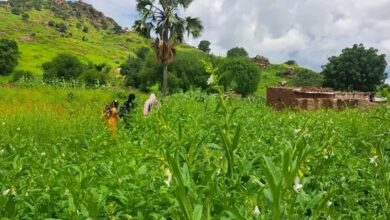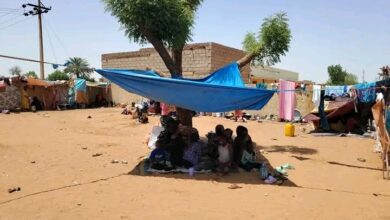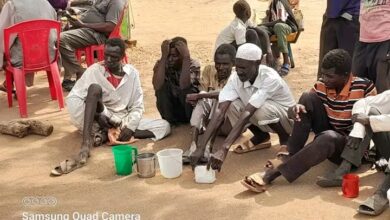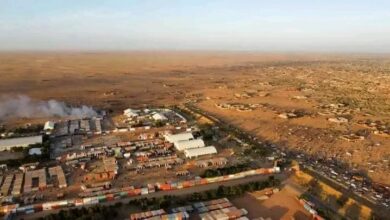Thirst Besieges Sudanese Amid Water Contamination Fears of a Health Catastrophe
Mashawir – Report by - Noah Adam Hudo
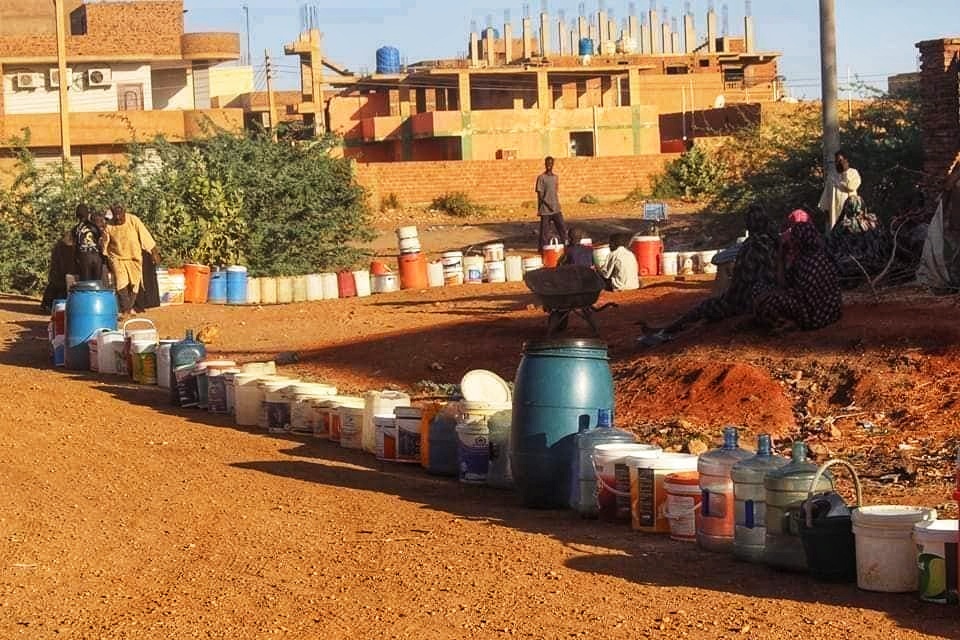
Several Sudanese cities have been suffering from a prolonged water crisis due to severe shortages of drinking water, as supply to many neighborhoods and homes has been cut off. This crisis stems from drone attacks by the Rapid Support Forces (RSF) targeting power stations, which has halted the operation of groundwater wells that rely on electricity.
These conditions have caused severe suffering for citizens in the capital’s three cities—Omdurman, Khartoum, and Bahri—as well as in Gedaref, Atbara, Sennar, Port Sudan, and large parts of Al Jazirah State. The crisis has been further exacerbated by soaring temperatures that have at times exceeded 46°C in much of the country.
Long Queues and Struggles
Khartoum State depends on 20 water stations—13 conventional and 7 pressurized—along with 1,400 groundwater wells. All have been put out of service due to indiscriminate shelling and challenges preventing maintenance teams from accessing them.
Mustafa Abdo, a resident of Omdurman, told Mashawir that “despite the Sudanese army regaining control of several areas, problems persist—chief among them the drinking water crisis.”
He added: “These conditions have forced residents to line up in long queues to fetch water from old wells, while the crisis has created a black market where water is sold at exorbitant prices.”
He explained that for the past eight months, his family has been living in Karari locality after returning from Gedaref, but the worsening water crisis has made their situation unbearable, especially after exhausting their savings.
Targeting of Water Stations
In a statement, the Karari Resistance Committees Coordination said: “Omdurman localities have been experiencing power and water outages and poor internet connectivity for the third day in a row, following the RSF’s targeting of the Merowe Dam.”
The statement noted that the attack on the Merowe Dam’s substation resulted in the shutdown of the Al-Manara water station, which supplies vast areas of Karari.
Karari, under army control and currently serving as the administrative center of Khartoum State since the conflict began, is considered one of the capital’s safest areas and has seen the return of thousands of families after the Sudanese Armed Forces and allies recaptured key sites.
Worsening Conditions in Other States
In Gedaref city, the drinking water crisis has worsened for over a week.
The Gedaref State Water Authority issued an apology to residents for the disruption in water supply across neighborhoods.
In a Facebook post, the authority attributed the outages to operational instability at the Al-Shawak station due to repeated power cuts, making it difficult to fill the main reservoir and deliver water with the usual efficiency. The authority confirmed it is working with relevant parties to overcome these challenges as soon as possible.
Contamination and Disease
Elsewhere, Manahil Ezzeldin, a resident of Bahri in Khartoum, told Mashawir: “We are living through a worsening humanitarian disaster due to thirst. We have no choice but to collect water directly from the Nile despite the hardship and the risks of contamination from sewage mixing into the river, which has already led to cholera cases.”
She added: “The drinking water crisis has forced people to travel long distances to fetch water using small carts known locally as ‘balderdaga’, from old wells operated by local efforts and authorities before the electricity was completely cut off.”
She continued: “We’re seeing cases of skin allergies, indigestion, persistent vomiting, and watery diarrhea. These symptoms are becoming harder to treat, especially among patients with kidney failure, further worsening their condition.”

